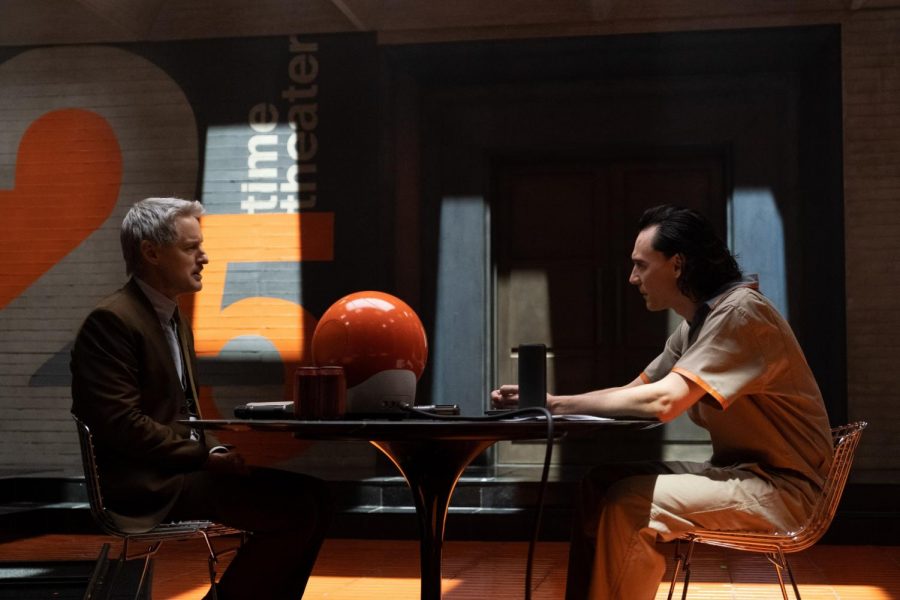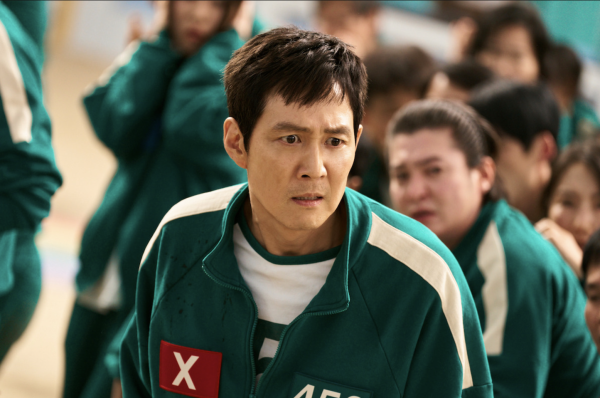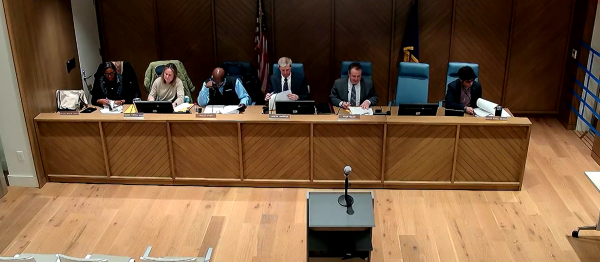Here’s where Loki went after last ‘Avengers,’ but Hiddleston’s role as a variant varies
From left, Mobius (Owen Wilson) and Loki (Tom Hiddleston) talk it out in Marvel Studios’ “Loki” on Disney+.
Editor’s note: This review discusses the first two episodes of “Loki” only.
In 2019, Marvel Studios released “Avengers: Endgame,” the fourth and final installment in the studio’s most popular line of movies. In the film, the Avengers return to New York in 2012 in an attempt to pull off a “time heist” and steal the Infinity Stones in a new timeline before Thanos acquires them. Loki, who is being kept prisoner by the Avengers (from the old timeline) vanishes after he manages to get his hands on the Tesseract.
“Loki,” Marvel Studios’ newest project, fills a gap in the Marvel Cinematic Universe (MCU) canon, following Loki’s journey from this exact moment. We are introduced to the Time Variance Authority (TVA), an absurdly powerful organization that governs everything pertaining to time. After he steals the Tesseract, Loki is brought into “time court” as a Variant — someone who has broken the laws of time and caused the creation of a new branch of the timeline that was not supposed to exist.
From there, Loki is remanded to the custody of TVA agent Mobius (Owen Wilson), who, instead of locking Loki up, decides to make him part of his mission to catch another, superior Loki variant who is terrorizing the timeline. The dynamic between Loki and Mobius is quite unconventional and, as a result, is the most intriguing aspect of this show. The two play off each other in a very authentic way.
While this show is certainly not based in reality, Marvel Studios approaches the topic with a level of detail that makes the existence of a bureaucratic agency tasked with maintaining a “sacred timeline” drawn up by omniscient, godlike beings called Time-Keepers seem almost believable. The MCU’s internal consistency has always been impressive, and “Loki” is no exception. The plot is extremely well-executed, making it possible to follow despite its complexity.
The one issue I have with “Loki” is that Tom Hiddleston’s portrayal of Loki is somewhat inconsistent. At times, he plays him like the cunning god of mischief that Marvel fans have come to associate with the character. But other times, he transforms Loki into something comical, not to be taken seriously. Yes, snappy humor and a quick wit must be at the core of Loki’s personality, but in the past, Hiddleston has been able to incorporate these elements into his portrayal to make Loki a formidable villain. In “Loki,” however, Hiddleston ramps up these character traits too much and ultimately creates a Loki that seems, to put it frankly, less intelligent.
Yet, Hiddleston continues to bring his trademark charisma to the role and it’s still entertaining to watch him make a fool of himself, especially in those moments when he snaps back into his intelligent, scheming side. Combine this with an interesting and new storyline, and you’ve got a show that will keep you hooked — just brush up on your MCU knowledge beforehand.
Grade: A-
This story originally ran in the print edition of the Pelham Examiner.
Vikram Jallepalli is a senior at Pelham Memorial High School. Writing for the Examiner is his first role in journalism. He performs in Sock’n’Buskin...












